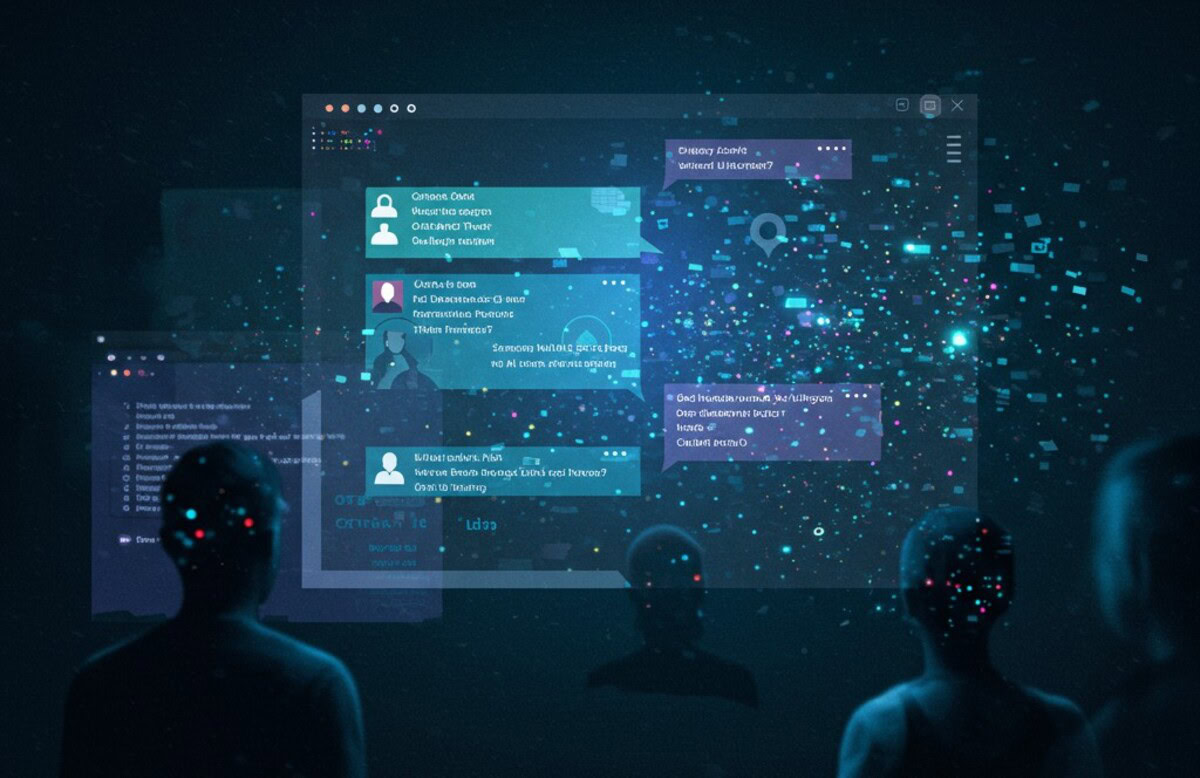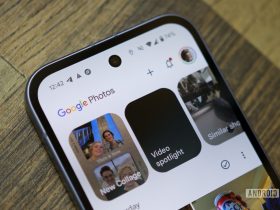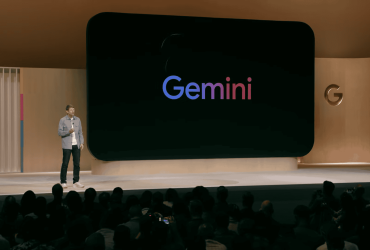Why Your AI Chats Will Probably Never Be Private Again

Contents
For millions of us, interacting with AI chatbots has become a daily routine. We ask questions, brainstorm ideas, draft emails, and sometimes, perhaps unknowingly, share sensitive information. There’s an unspoken understanding that when we delete a chat, it’s gone for good. But a recent starting court order involving OpenAI, the company behind ChatGPT, has inadvertently pulled back the curtain on this assumption. This development revealed a reality that many users might find unsettling: the illusion of privacy in AI interactions or chats.
This revelation stems from a high-stakes legal battle between OpenAI and The New York Times. Back in 2023, The Times filed a copyright infringement lawsuit. The publisher alleged OpenAI illegally used its vast trove of copyrighted articles to train its powerful AI models. As part of the legal process, a federal court recently issued a sweeping directive: OpenAI must indefinitely preserve logs of every single ChatGPT conversation, including those users thought they had deleted.
The Shocking Order: Deletion Doesn’t Mean Gone
Basically, pressing that “delete” button won’t make your chats disappear into the digital ether. Well, they won’t be available to you anymore, but they will be in OpenAI’s database. That’s the core of the “nightmare” OpenAI’s COO, Brad Lightcap, described. The court order demands that OpenAI retain all user chat logs and API client content without a cutoff date. The judge states that the measure is aimed at preventing any potential deletion of evidence relevant to the copyright dispute. At this point it seems important to remember that OpenAI admitted to accidentally deleting potential evidence in the same NYT lawsuit.
Jane Doe, privacy counsel at CyberSecure LLP, said, “This directive is unprecedented and sets a dangerous precedent for user autonomy.” “Companies need clear rules that balance discovery needs with fundamental privacy rights,” they added.

The IA-focused firm is actively appealing this decision. The company vehemently argues that such an order represents a major breach of user privacy. It also directly conflicts with their stated privacy commitments. They also point to the immense technical and logistical burden of storing such colossal datasets indefinitely. It’s a legal skirmish that has unexpectedly become a “smoking gun,” exposing the broader AI industry’s data collection practices and challenging the very notion of what “private” truly means in the age of generative AI.
Inbal Shani, Chief Product Officer at GitHub, also disagrees with the approach of indefinitely keeping user interaction data with AI platforms. “Data used to train AI should not outlive its legal or ethical shelf life,” she said. “Organizations need automated systems to delete or anonymize data, especially when it’s reused or repurposed,” Shani added.
The Data Collection Reality: A Closer Look at What Chatbots Collect
If OpenAI is now compelled to retain even “deleted” chats, it begs the question: just how much of our data do these AI chatbots collect to begin with? While the court order is specific to OpenAI in this context, it prompts a wider examination of the industry.
According to research by Surfshark, a cybersecurity firm, the landscape of AI chatbot data collection varies significantly. However, the overall picture suggests a vast appetite for user information:
- Meta AI: Reportedly collects the most user data among popular chatbots, gathering a staggering 32 out of 35 possible data types. This includes categories like precise location, financial information, health and fitness data, and other sensitive personal details.
- Google Gemini: Collects 22 unique data types, which also include precise location data, contact info, user content, and search and browsing history.
- ChatGPT (OpenAI): Collects fewer types compared to the others, at 10 distinct data types. These typically include contact information, user content, identifiers, usage data, and diagnostics. Notably, Surfshark’s analysis suggests ChatGPT avoids tracking data or using third-party advertising within the app.

This comparison highlights a critical spectrum of data collection. While some companies might collect less, the sheer volume and type of data, especially sensitive information, that can be associated with your AI interactions is significant. Regulators are already taking notice of this reality. For instance, Italy’s privacy watchdog recently slapped Replika AI with a €5 million fine for serious GDPR violations related to user data. These instances highlight a global push for greater accountability and transparency in AI data handling.
A Dangerous Precedent: Eroding Trust and Redefining Privacy
The OpenAI court order sets a dangerous precedent, not just for OpenAI but for the entire AI industry. It shatters the convenient illusion that user conversations are ephemeral or truly “deleted.” For users, this means that any sensitive information, personal thoughts, or private queries shared with an AI chatbot might exist indefinitely on a server. So, they could be potentially accessible under legal compulsion. This could lead to a chilling effect, where users self-censor or become reluctant to engage with AI for sensitive topics, undermining the very utility and trust these tools aim to build.
Sam Altman’s “AI Privilege”: A Call for Confidentiality
The “fear” of sharing data with AI chatbots, like ChatGPT, could also undermine OpenAI’s vision for these types of platforms. In light of this privacy landscape, Sam Altman, OpenAI’s CEO, has voiced a compelling argument for what he terms “AI privilege.” Altman believes that interactions with AI should eventually be treated with the same level of confidentiality and protection as conversations between a doctor and patient or an attorney and client. He even suggested “spousal privilege” as a more fitting analogy for the intimacy of some AI interactions.
we have been thinking recently about the need for something like “AI privilege”; this really accelerates the need to have the conversation.
imo talking to an AI should be like talking to a lawyer or a doctor.
i hope society will figure this out soon.
— Sam Altman (@sama) June 6, 2025
This concept isn’t just theoretical; it’s a direct response to the new realities exposed by the lawsuit. Altman’s call for “AI privilege” reflects a growing awareness within the industry that the current legal and ethical frameworks are ill-equipped to handle the unique data privacy challenges posed by conversational AI. He hopes society addresses this issue promptly, acknowledging the profound implications for user trust and the utility of AI.
Practical Steps Readers Can Take Right Now
Given these revelations, what can you do to protect your privacy when interacting with AI chatbots?
- Be mindful of sensitive data: Avoid sharing highly sensitive personal, financial, health, or confidential information with any AI chatbot. Assume that anything you type could be retained.
- Check privacy policies (but remain skeptical): Companies have privacy policies outlining data handling. However, remember that court orders can compel data preservation, potentially overriding standard deletion policies.
- Utilize “Guest” or “Incognito” modes: If an AI service offers temporary or incognito modes (like ChatGPT’s “Chat history & training” toggle), use them. Understand, however, that “temporary” often means “deleted from your visible history,” not necessarily permanently erased from all backend systems.
- Regularly Review Account Settings: Periodically check your AI chatbot’s account settings for data retention or deletion options, and exercise them if available.
- Stay Informed: Keep an eye on news and privacy discussions around AI. The regulatory landscape is evolving rapidly.
Industry, Legal, and Legislative Responses
The OpenAI court order has undoubtedly sent ripples through the entire AI industry. While no other major AI companies have publicly announced immediate, direct policy changes specifically in response to this order (beyond existing privacy commitments), the threat of similar legal mandates will almost certainly lead to internal reviews of data retention policies and lobbying efforts for clearer regulations.
Privacy law experts predict increased regulatory scrutiny. The European Union, with its stringent GDPR (General Data Protection Regulation) and the pioneering AI Act (which imposes a risk-based framework on AI developers), is leading the charge. Other nations and regions are expected to follow suit. This could possibly lead to more comprehensive federal data privacy laws in the US that specifically address AI. The legal battle itself, with a federal judge already allowing the core copyright infringement claims to proceed, is set to shape the future of AI’s relationship with intellectual property and user data.
The incident serves as a wake-up call: while AI offers incredible convenience, the true cost of “free” AI answers might involve a fundamental rethinking of our digital privacy and the unseen repositories of our conversations. As AI becomes more deeply integrated into our lives, the demand for transparency, robust privacy safeguards, and a clear understanding of data retention will only grow louder.
What’s your reaction?
Love0
Sad0
Happy0
Sleepy0
Angry0
Dead0
Wink0









Leave a Reply
View Comments